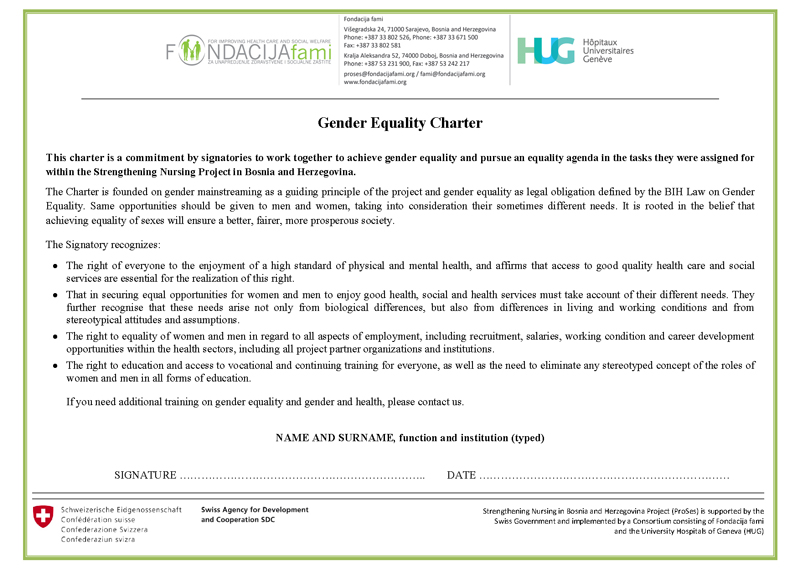Gender Sensitive Approach
Sex and gender as health determinants
Unlike sex, which is a biological category, gender is socially constructed, made up of social norms, roles and relations between the sexes. Sex and gender together affect private and social lives of men and women, position and power, access to resources, decision-making ability, personal time and many other aspects of life.
Sex and gender are also key health determinants. Individually or together they contribute to differences between men and women in aspects such as: the incidence of certain diseases, risk propensity or exposure to pollution, access to information, behavior during illness, subjective experience of illness, attitudes towards one's own health and the health of other family members, assessment of health care services quality etc. This ultimately leads to differences in health outcomes in men and women.
Due to all afore mentioned, men and women have partly common but also different health needs. These needs require a gender-sensitive care approach, i.e. sex-specific and gender-sensitive health services provided by gender-sensitized health workers. Only in this way can gender equity and equality in health be achieved. This is one of the 17 global Sustainable Development Goals of the United Nations. Gender equality leads to a better, more righteous and prosperous society.
Gender sensitive approach in ProSes
In countries with a high social exclusion rate such as BIH, gender inequalities are linked to other existing inequalities, all leading to an increased risk of poverty and marginalization. Healthcare workers, especially nurses, are in a unique position to address the gender-based or social inequity issues.
On the other hand, in the health sector, nurses make up the largest group of healthcare workers, over 50%. Among them, most are women (over 80%). Nevertheless, nurses in general and women in particular, are underrepresented in management structures and excluded from the health sector decision-making process.
We are bound by both international and domestic legal and institutional frameworks and standards to apply a gender-sensitive approach.
Due to the aforementioned, along with a focus on vulnerable and socially excluded groups, a gender-responsive strategic approach is one of the guiding principles of the project. This transversal principle extends through all project activities and includes, inter alia:
- project partners’ capacity building for the application of a gender-responsive approach in everyday work
- inclusion of gender aspects in newly developed curricula and trainings for nurses but also other products of the project
- gender mainstreaming in research and sex-disaggregated data collection
- strengthening health promotion, prevention and community services as measures of social inclusion
- improving nurses’ working conditions, position and their involvement in the creation of health policies.
By signing “gender charters", project partners from a number of health and educational institutions in BIH recognize the right to gender equity in health, employment and education and symbolically commit to work together to achieve sex equity in the tasks assigned to them within the project.

Gender Equality Charter - PDF document